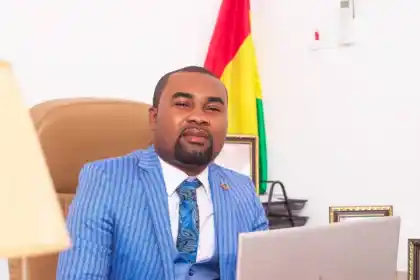The New Patriotic Party (NPP) finds itself at a critical juncture, navigating a complex landscape of internal tensions and external pressures as it looks towards the 2028 elections. Dr. Razak Kojo Opoku, a senior strategist for the Bryan Acheampong 2028 campaign, has issued a stark warning to the party leadership, emphasizing the delicate balance required in engaging with religious figures. He argues that open confrontations with influential Christian leaders and prophets could severely damage the NPP’s electoral prospects, particularly given existing demographic challenges faced by certain candidates. Dr. Opoku’s caution underscores the significant role that religious leaders play in Ghanaian politics and the potential repercussions of alienating them. He suggests a strategic approach, emphasizing the need for restraint and carefully considered responses, even in the face of disagreement, to maintain a positive relationship with this influential segment of the population.
Dr. Opoku’s concerns extend beyond just the management of relationships with religious leaders. His critique of the NPP’s current leadership paints a troubling picture of a party struggling with its identity and direction. He describes the party as weakened on multiple fronts – spiritually, physically, and strategically – suggesting a loss of the core values and principles that once defined it. His accusations of declining character, an embrace of falsehoods, and a rejection of truth further highlight the internal struggles within the party. These internal divisions, coupled with the external pressure of maintaining public image and building crucial alliances, create a challenging environment for the NPP as it charts its course toward the 2028 elections.
The strategist’s warning about engaging with religious leaders can be viewed within the larger context of the NPP’s internal struggles. A party weakened by internal divisions, accusations of moral decay, and strategic uncertainties is ill-equipped to handle the delicate complexities of navigating relationships with powerful religious figures. An open confrontation, fueled by internal discord and strategic miscalculations, could easily backfire, further damaging the party’s already fragile image and alienating a significant voting bloc. Dr. Opoku’s comments, therefore, serve as a wake-up call to the NPP leadership, urging a reassessment of its current trajectory and a return to the core values that once resonated with the electorate.
The timing of Dr. Opoku’s remarks is particularly significant, coinciding with intensifying internal competition for leadership within the NPP. As aspirants jockey for position and strategists debate the best path forward, the party finds itself in a period of heightened vulnerability. The internal debates surrounding messaging, alliances, and public image reflect the deeper uncertainties and anxieties about the party’s future. Dr. Opoku’s intervention adds another layer of complexity to these internal discussions, forcing the party to confront not only its strategic weaknesses but also the ethical implications of its actions and the potential consequences of alienating key constituencies.
The challenges facing the NPP are multifaceted and interconnected. The party must address its internal divisions, restore public trust, and develop a coherent strategy for the 2028 elections. The warning about engaging with religious leaders serves as a microcosm of the larger issues facing the party. It highlights the need for strategic thinking, careful communication, and a deep understanding of the social and political landscape. Ignoring this advice could have serious repercussions, further isolating the party and diminishing its chances of electoral success.
The path to the 2028 elections for the NPP is fraught with challenges. The party must reconcile its internal differences, rebuild its image, and develop a compelling vision for the future. Navigating the complex relationship with religious leaders is just one piece of the puzzle, but it is a crucial one. Ignoring the advice of experienced strategists like Dr. Opoku could prove costly. The NPP must heed these warnings and engage in a serious process of self-reflection and strategic planning if it hopes to reclaim its position and win the confidence of the electorate in the upcoming elections. The party’s future hinges on its ability to learn from its mistakes, unite its ranks, and present a cohesive and compelling vision to the Ghanaian people.


